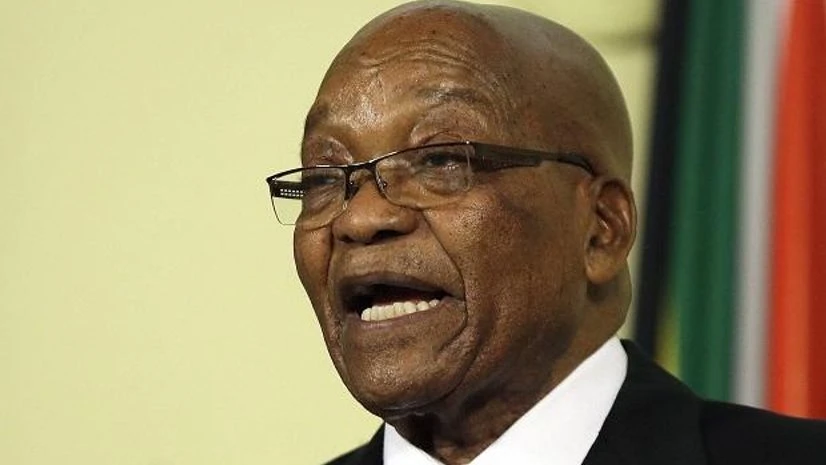South Africa's Commission of Inquiry into State Capture has asked the country's highest judiciary body to jail former president Jacob Zuma for two years for contempt of court.
The move came after Zuma repeatedly failed to appear before the Commission following his walkout with his lawyer late last year, despite a summons from the Constitutional Court (ConCourt), which is South Africa's highest judiciary body, to do so.
Zuma, 78, last year walked out of a hearing at the Commission without the permission of the chairperson, which was deemed to be in contempt of court.
The former president insisted that he will not return unless the chairperson of the Commission, Deputy Chief Justice Raymond Zondo, steps down.
Zuma claimed he would not get a fair hearing because Zondo, he alleged, is biased against him, something that the Deputy Chief Justice has denied.
Also Read
In an urgent application to the Constitutional Court, the Commission's secretary Itumeleng Mosala sought two-year jail term for the former president for committing a number of contemptuous acts -- failing to turn up when he was summoned to, failing to file affidavits as per the apex court's order and making scurrilous statements against the Constitutional Court and the whole of the judiciary.
Asserting that it was not an "ordinary case of contempt, Mosala said Zuma's conduct was "calculated to undermine the integrity of the Constitutional Court and the judiciary in general".
Mosala said the sentence also needed to reflect the expectation of society that a person in a leadership position with immense influence like Zuma should comply with the law rather than displaying contempt of the law.
Zuma was asked to step down three years ago by his own African National Congress amid widespread public anger over allegations of his role in state capture, especially by the Gupta family, originally from India, who were allegedly very close to Zuma during his presidency.
The family is now in self-exile in Dubai, with South Africa reportedly engaging the government there for extradition.
Zuma last week alleged that the judiciary, long held as operating at arm's length from the government, was now serving the needs of a few people with vested interests.
In a 12-page statement on Monday last, the former president repeated his claim that the Zondo Commission was part of a well-orchestrated plan to remove him from office, although he offered no evidence to back this up.
"I firmly believe that we should never allow for the establishment of a judiciary in which justice, fairness and due process are discretionary and are exclusively preserved for certain litigants and not others," he alleged.
"It is not the authority of the Constitutional Court that I reject, but its abuse by a few judges. It is not our law that I defy, but a few lawless judges who have left their constitutional post for political expediency. I respect the law and have subjected myself even to its abuse for the past 20 years," Zuma said.
Zondo had said it would set a dangerous precedent if Zuma was allowed to defy the summonses from the Commission, as well as the ruling by the Constitutional Court for him to appear before the Commission.
(Only the headline and picture of this report may have been reworked by the Business Standard staff; the rest of the content is auto-generated from a syndicated feed.)

)
